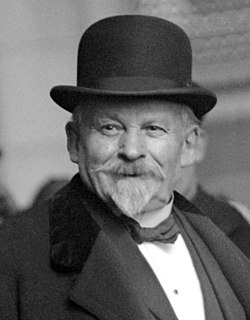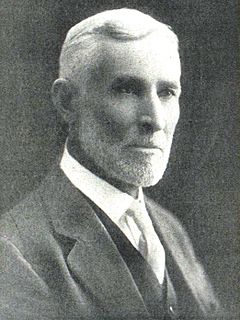A Quote by Michel Foucault
[T]ruly to escape Hegel involves an exact appreciation of the price we have to pay to detach ourselves from him. It assumes that we are aware of the extent to which Hegel, insidiously perhaps, is close to us; it implies a knowledge, in that which permits us to think against Hegel, of that which remains Hegelian. We have to determine the extent to which our anti-Hegelianism is possibly one of his tricks directed against us, at the end of which he stands, motionless, waiting for us.
Related Quotes
Since substance is infinite, the universe as a whole, i.e., god, Hegel is telling us that philosophy is knowledge of the infinite, of the universe as a whole, i.e, god. You cannot get more metaphysical than that. I think that Hegel scholars have to admit this basic fact rather than burying their heads in the sand and trying to pretend that Hegel is concerned with conceptual analysis, category theory, normativity or some such contemporary fad.
Each member of society can have only a small fraction of the knowledge possessed by all, and...each is therefore ignorant of most of the facts on which the working of society rests...civilization rests on the fact that we all benefit from knowledge which we do not possess. And one of the ways in which civilization helps us to overcome that limitation on the extent of individual knowledge is by conquering intelligence, not by the acquisition of more knowledge, but by the utilization of knowledge which is and which remains widely dispersed among individuals.
Advice is offensive, not because it lays us open to unexpected regret, or convicts us of any fault which had escaped our notice, but because it shows us that we are known to others as well as to ourselves; and the officious monitor is persecuted with hatred, not because his accusation is false, but because he assumes that superiority which we are not willing to grant him, and has dared to detect what we desired to conceal.
Inspired men have been raised up, who have given us our form of government, and the code of laws by which we are controlled, the best ever evolved by man, so far as we are able to judge. The Lord has strengthened the arms of the patriots who have defended us against the assaults of all those who have come up against us, and delivered us until today, from those who would have torn us asunder. Against all opposition, I sometimes think almost against ourselves, the Lord has brought us to our present condition, until this nation, like a city set on a hill, has become the light of the world.
I expect a time when, or rather an integrity by which, a man will get his coat as honestly and as perfectly fitting as a tree itsbark. Now our garments are typical of our conformity to the ways of the world, i.e., of the devil, and to some extent react on us and poison us, like that shirt which Hercules put on.
There is a form of eminence which does not depend on fate; it is an air which sets us apart and seems to prtend great things; it is the value which we unconsciously attach to ourselves; it is the quality which wins us deference of others; more than birth, position, or ability, it gives us ascendance.
All the wants which disturb human life, which make us uneasy to ourselves, quarrelsome with others, and unthankful to God, which weary us in vain labors and foolish anxieties, which carry us from project to project, from place to place in a poor pursuit of we don't know what, are the wants which neither God, nor nature, nor reason hath subjected us to, but are solely infused into us by pride, envy, ambition, and covetousness.
Although our moral conscience is a part of our consciousness, we do not feel ourselves on an equality with it. In this voice which makes itself heard only to give us orders and establish prohibitions, we cannot recognize our own voices; the very tone in which it speaks to us warns us that it expresses something within us that is not of ourselves.






































